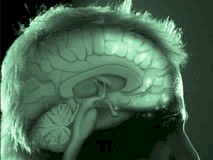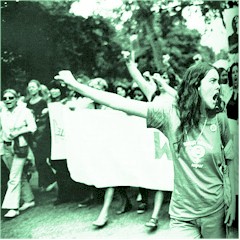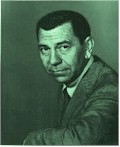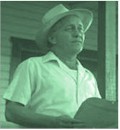 |
|
|
 |
 |

The Great Debate
Never was a subject so filled with “hot button” issues as the subject of human nature. Obviously, the closer one is to an issue, personally that is, the more difficult it is to view it clearly. Add to that, the political ideology, the religious connotations, and the threatening nature that innovative thinking has on academic authorities, and it is not surprising that this subject, more than any other, raises obstacles to pure inquiry unlike any other in the social science field.
As a graduate student in the 1980s at a prestigious northeastern university, I can remember how dismayed I was to find the complete lack of intellectual curiosity and integrity among the faculty, who apparently valued the power that their supposed expertise gave them, more that they valued new and promising ideas.
The Graduate School of Criminal Justice was divided into two camps: the “deviants are sick” camp and the “deviants are bad” camp. As a doctoral student one was forced to choose sides. Citations were the game in which one needed to constantly monitor the number and ideological preference of the citations one used in any papers presented. In this way, the expert authority of those faculty members cited, are raised to a level approaching adulation. It was clear that any new ideas that did not build upon this adulation, were deemed heretical. Ideas that raised the question of what contribution evolution, or for that matter any biological basis for behavior, might make to the study of deviant behavior were deemed to be “dangerous” by both sides and the student was warned to drop such issues completely or risk retribution.
In this way I learned that progress in thinking almost always must come from outside the field of study, in order to avoid the censorship of powerful authorities who will be threatened by it. When a subject such as human nature is in play, this becomes exceedingly difficult since there are so many whose authority in their fields are threatened.
In his book The Fabric of the Mind, Richard Bergland remarks on the difficulty of making major progress in any area of science. He reflects on Thomas Kuhn's work in The Structure of Scientific Revolutions wherein Kuhn states that: "the study of paradigms is what prepares a student for membership in a particular scientific community. Men whose research is based on shared paradigms are committed to the same rules and standards for scientific practice." Bergland comments that "Kuhn describes such steps well in his book about scientific revolutions, pointing out again and again that the plans of future scientific development determined by the group seldom lead to paradigm shifts. The dents in the frontiers of science, the new paradigms, have almost always been made by lone scouts."
We would argue that such lone scouts come from the fringes of a field, where they are permited some lattitude without directly threatening the expert authority of a particular scientific community. Therefore, breakthroughs in fields such as social science may be more likely when led by lone scouts from another area such as zoology. We owe a great debt to such lone scouts as Edward O. Wilson and his work on sociobiology.
|

Emotional obstacles
Like everyone else, academics, social scientists, religious and political leaders and others who are members of the elite power structure rely upon their personal emotional responses when considering issues that affect human policies and positions concerning human nature. Wilson states that such emotional centers of the brain are “located just beneath the ‘thinking’ portion of the cerebral cortex.”
It is not surprising that an intellectually honest search for the truth regarding human nature faces many obstacles.
|

Strident Agendas
Another major obstacle to any search for truth on the subject of human nature is the strident political/social agenda of many activists, both inside and outside academia. It may be observed that a great many activists seek faculty positions in colleges and universities as platforms from which to advance their political/social agenda.
From these positions of power they hope to indoctrinate students in their own biases, based not on science, but on their personal agendas. Students who voice opposition are subject to retaliation and any belief that professionalism on the part of the faculty would prevent this is both naive and misguided. When was the last time a university student successfully challenged a grade in an appeal to the administration.
Whether in or out of academia, the self appointed elites of our society, from areas representing: radical feminists, homosexuals, politicos of both the right and left, racial minorities, religious leaders of both the right and left and professionals with vested interests in outmoded theories, all are vigorously pressing their agendas.
In the July 1, 2007 publication Social Work, an Assistant Professor of Social Work published an essay on the importance of social workers undermining the alleged "social construct" of gender. In the essay entitled “Bending gender, ending gender” this Professor asserts that social workers must reject "a dichotomous understanding of gender" in favor of "more accurate and affirming conceptualizations of gender,” and says that current view of gender - the social construct of dividing humans into male and female - is oppressive and should be rejected altogether. Good luck to the student who may hold out hope for an open mind on such issues.
|

Just the Facts
“I Just Want Facts Ma'am, Just the Facts.”
--Joe Friday, Dragnet
"Everyone is entitled to their own opinions, but they are not entitled to their own facts."
--Daniel Patrick Moynihan
On dangerous ground - if you are on dangerous ground, you are talking about a subject which might upset or offend people. Sometimes the facts offered by the scientific community read as follows:
Knowledge of RF sex differences contributes to our understanding of basic biology and can increase the power of a linkage study, improve gene localization, and provide clues to possible imprinting. One way to detect these differences is to use lod scores. In this study we focused on detecting RF sex differences and answered the following questions, in both phase-known and phase-unknown matings: (1) How large a sample size is needed to detect a RF sex difference? (2) What are 'optimal' proportions of paternally vs. maternally informative matings? (3) Does ascertaining nonoptimal proportions of paternally or maternally informative matings lead to ascertainment bias?
--Social Scientist writing on human male/female biological differences.

"What we've got here is...failure to communicate."
--The Captain, Cool Hand Luke
Social Scientist have, for the most part learned to stay clear of controversy in the area of human nature by writing in a manner so abstruse that activists, who might be upset, can’t understand what they are talking about.
|

You Can't Handle the Truth
In his book "Why WE Lie", David Livingstone Smith contends that research has shown that "normality" for the human mind rests on a foundation of self-deception. He concludes:
If it is true that we are all natural-born liars, it follows that the scientific investigation of human nature runs against the grain of human nature itself. It is triply paradoxical that although we are the only animal that has evolved a mind with the remarkable power to scientifically analyze its own nature, this same mind has been configured by the forces of natural selection to oppose and dismiss the outcome of this investigation. Perhaps the best place to start is to look at the role of dishonesty in other organisms. In doing this, we can begin to understand just how natural deception is and to get a sense of the strategies that we have inherited from our pre-human ancestors as they slowly trudged down the long road of evolution.
|
|
|
 |
|
|
 |
|
|
 |
|
Copyright by OnHumanNature.com 2008
|
|
|
 |